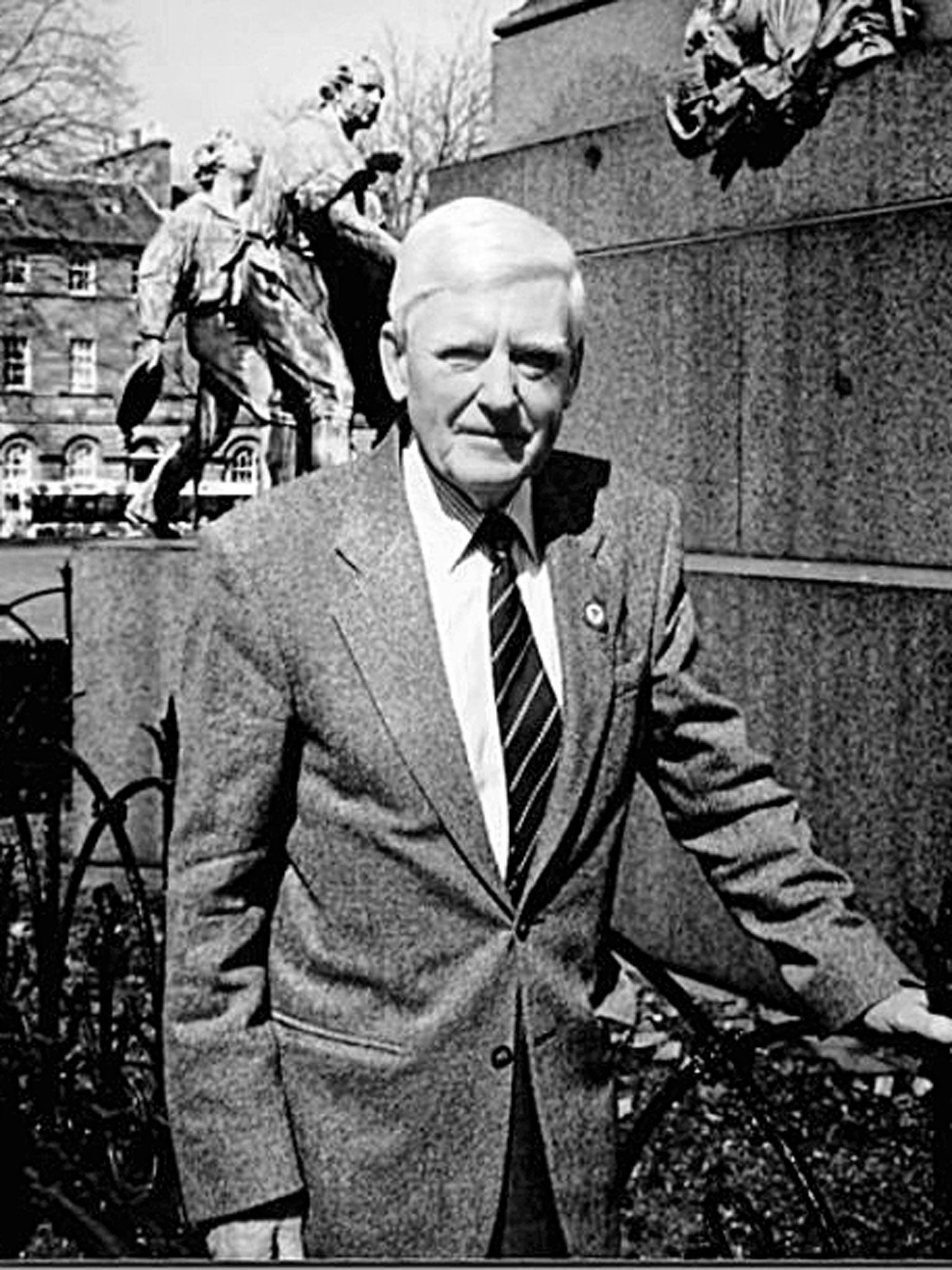Donald Helm: Oilman who negotiated troubled times in Africa then served Scotland's National Trust for 30 years

For the last 30 years, in a voluntary capacity, Donald Helm was a major influence in the affairs of the National Trust for Scotland. Among his particular contributions were his involvement in the Isle of Rhum and the Trust's World Heritage site at St Kilda. Sir Kenneth Calman, former Chief Medical Officer for England, and now Chairman of the National Trust for Scotland, told me, "Donald's advocacy and support were instrumental in ensuring that volunteering is today at the heart of the Trust's work."
Helm made a valuable study of volunteering in the Trust, Gifts of Time, in 1999; in 2003 he received the George Waterston Memorial Award and a Lifetime Achievement Award at the Diamond Jubilee awards ceremony in 2012. He was Chairman of the Trust's Edinburgh Members Centre in the 1980s, and was elected to the Trust's Council in 1987 (and re-elected in 2000).
Donald Knox Helm was the only son of the distinguished diplomat, Sir Alexander Knox Helm, who served as Consul, Counsellor or Ambassador in Addis Ababa, Washington, Ankara, Hungary, Israel and Turkey, and was the last Consul-General in pre-independence Sudan. Accompanying his parents, Helm explained, "I had an unusual, often uncomfortable, but broadening childhood, for which I shall always be grateful to my proud, Dumfries-born father."
My lifelong friendship with Helm was forged when we had adjacent beds in the freezing Potential Officers Nissen hut at the Armoured Corps Training Regiment, Catterick. He had made a huge error of judgement; ever a stickler for accuracy, he had addressed the diminutive John Warrender as "lance-corporal". "Call me corporal, Helm!" barked Warrender, who then had it in for him. "The Sergeants' Mess was in fits of laughter about Helm's faux pas," one of their number confided to me, "but we knew that Helm was so resilient about being picked out that he would make a good officer." Later, I heard that he had indeed been an excellent tank commander in the Suez Canal Zone.
I saw Helm's resourcefulness and resilience for myself when we were required to climb through drainpipes at midnight by the tough, redoubtable Captain Ives of the Lancers during exercises on the god-forsaken North York Moors. But my abiding memory of him from that time was his 10-minute talk (which we all had to as part of the Potential Officers course). Helm's subject was "The statues and landscape of Stowe Park".
Like many other Stoics, he had been inspired by his headmaster, JF Roxburgh – described by Noel Annan in Roxburgh of Stowe as one of the great heads of the 20th century. "Stowe," Helm told me, "was the spark that lit my interest in the activities of the National Trust."
Helm next went to what was then Fitzwilliam House, Cambridge, whose Censor was William Sutherland Thatcher MC; he had been Professor of Economics in the University of Allahabad and had been wounded in Flanders and East Africa, and had attracted many students from the Empire. Our mutual friend, Mujib Khan, later Pakistan's Foreign Minister and Ambassador to China, told me, "Donald is the very nicest to us of the British undergraduates, and is welcome when he comes to the Majlis [the society of Afro-Asian students at Cambridge]".
Helm told me, "the trouble with these overseas boys at Fitzbilly is that they are so bloody clever – there is a guy called Lee Kuan Yew who got a Starred First in Law!" (He was soon to become the Prime Minister of Singapore.)
Helm developed a particular rapport with Africans, and was chosen by BP to work in senior management in the Niger Delta, based mostly in Port Harcourt. In autumn 1962, when the House of Commons was immersed in the cause célèbre of the journalist and independence activist Chief Enahoro, who had fled to Britain but was wanted back home, I received a long letter from Helm in Lagos detailing the views on Enahoro from a Nigerian perspective. Later in the decade he wrote to me contradicting the received wisdom that the Biafran War was a simple conflict between Ibo and Yoruba and criticising the Biafran leader General Ojukwu, and Shell for its exploitation of the people.
At a lunch for BP-connected MPs in London Sir Eric Drake, then BP chairman, told me that the company thought well of Helm and his work in difficult circumstances. Helm made many Nigerian friends, including the Prime Minister Abubakar Tafawa Balewa, whose assassination in 1966 upset him greatly.
After early retirement from BP, Helm worked for the Edinburgh lawyers, Shepherd and Wedderburn. Ivor Guild, former senior partner there, recalled that "Donald was an extremely well-received office manager, a position only junior to the firm's partners." Ever cheerful and dignified, Helm fought an ultimately losing battle with prostate cancer.
Donald Knox Helm, BP executive: born Welwyn Garden City 20 November 1931; married 1957 Christine Jones (two sons); died Edinburgh 18 February 2014.
Join our commenting forum
Join thought-provoking conversations, follow other Independent readers and see their replies
Comments